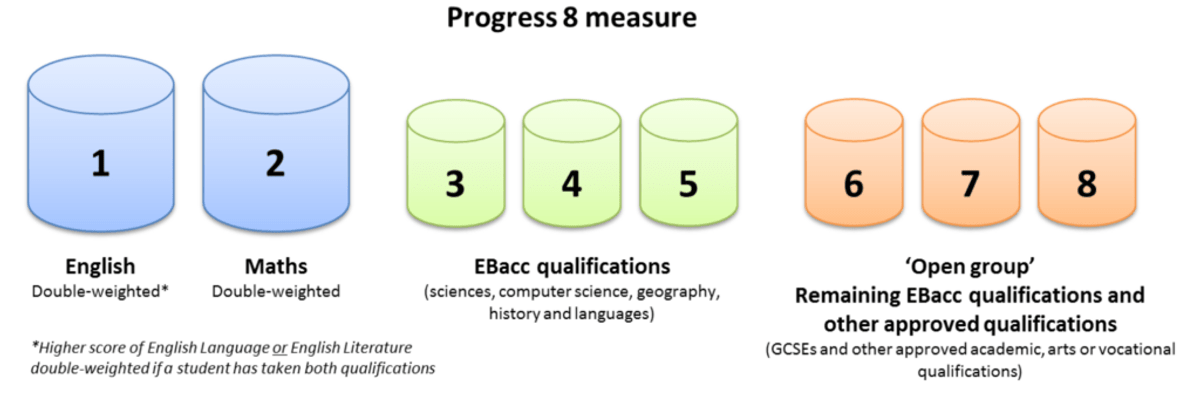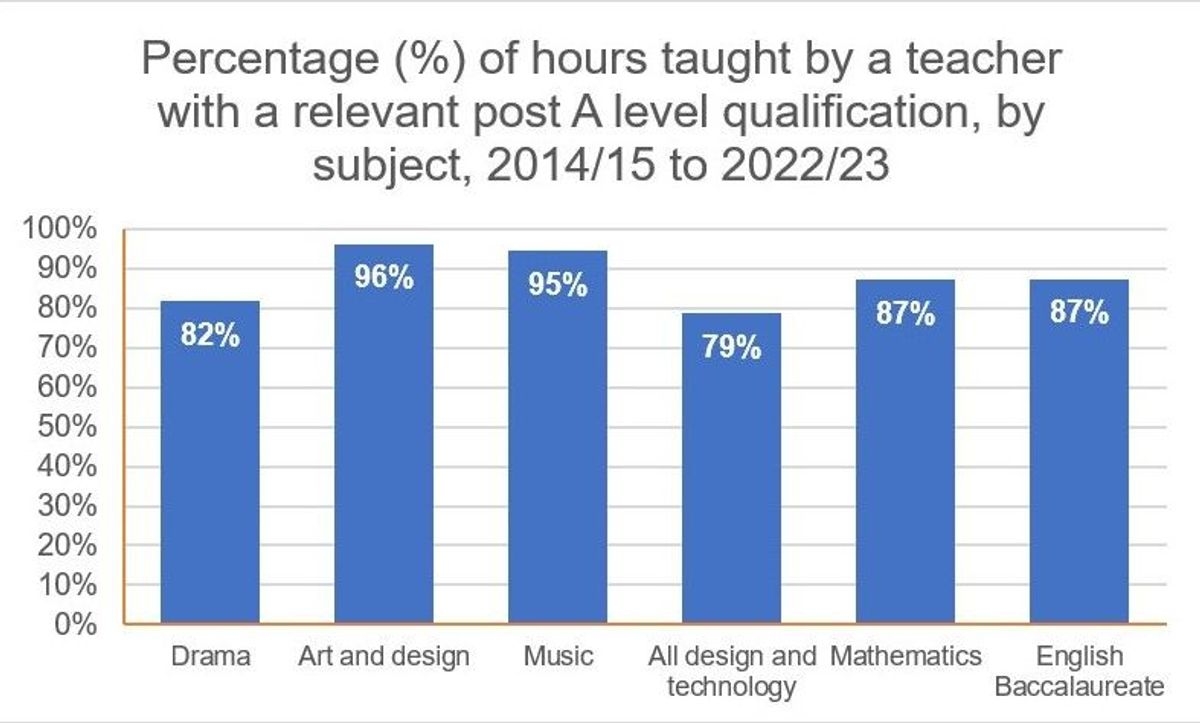
What tools are needed to make creative and vocational qualifications part of school accountability measures?
Unveiling Labour’s education policy, Sir Keir Starmer pledged to ‘update’ the Progress 8 and Attainment 8 accountability measures to include at least one creative subject or vocational technical qualification (VTQ).
With this simple-looking manoeuvre, Sir Keir will be hoping to infuse all students with both ‘knowledge and skills’, broaden their curriculum and, at the same time, stop Arts GCSEs and VTQs “being squeezed out”.
I chose the phrase ‘simple-looking’ carefully because there are some key points to consider before giving it the two thumbs up.
Firstly, why does Labour want to do it?
Is it feasible to make creative and VTQs compulsory to 16?
How practical is the idea?
And finally, what does this show about Labour’s attitude to education?
Why would Labour want to update Progress 8 measures?
Under the current Progress 8 framework, there are three distinct groupings or ‘buckets’ of subjects: English and Maths; qualifications in the EBacc subjects; and an ‘Open’ group, within which approved arts and vocational subjects can already be taken.

“Hang on,” I hear you say.
“Creative and vocational GCSEs are already part of Progress 8, so why the announcement?”
Well, one criticism of Progress 8 is that the buckets incentivise EBacc subjects and de-incentivise the non-EBacc.
Indeed, research has found that because of the way Progress 8 attainment is measured, it ends up weighted (70:30) in favour of the traditional academic subjects of the EBacc.
On top of that, lots of vocational qualifications that could have gone in the third bucket were defunded and done away with.
This means oftentimes, other EBacc subjects in more traditional GCSEs are being taken instead. One outcome of this is that, even though arts and VTQs are in the third bucket, declining numbers are studying them.
Labour’s move to make creative or vocational subjects compulsory to 16 therefore signals a substantial change to the current system.
Is it feasible?
In short, yes.
The most straightforward way to achieve this could be done by creating a new 'bucket' focused exclusively on creative and vocational subjects.
The 'open group' could be made smaller, but still contain arts and vocational subjects.
Students would then pick two from the 'open group' and one from the new 'creative and vocational' bucket.
This simple sorting of the cards and re-dealing them into four piles instead of three should be easy for students, parents and teachers to understand.
And it does not rip up the accountability system.
So, that’s the administrative side of the issue but the other big question is how would it be delivered in practice?
Is it practical to make Creative GCSEs and VTQs compulsory?
This is a more complicated question.
The announcements coming from the Labour camp are at present high level and questions remain around what this particular one will mean in the classroom.
Thinking about whether they’ll work, we need to look at teacher numbers.
Any education policy announcement needs to be delivered by a qualified teacher in a classroom.
Workforce data provides some interesting details.
While students studying Music and Art & Design are most often taught by specialist teachers, that is less likely for those doing Drama or any area of Design and Technology.

Source: Government statistics
So, while it may be achievable to get more students doing creative subjects or VTQs, the relative lack of specialist teachers complicates the picture.
For the move to offer real benefit for students, Labour will need to have a plan to ensure quality teaching is available.
What does Labour’s wish to update Progress 8 show?
A recent piece of statistical research by FFT Education Datalab showed that if the plans were implemented it would make little difference to schools’ Progress 8 scores.
However, they would almost certainly increase the percentage of pupils entered for a creative or vocational subject from its current level of 83% - the stated aim of the proposal.
The clearest message from this announcement is Labour’s commitment to raising numbers taking vocational and creative qualifications. Alongside other announcements particularly focusing on the importance of music education, this shows a focus on having creativity sit alongside traditional academic subjects.
While Labour’s desire to bake-in creative and vocational education is welcome more detail is needed on how this can be delivered in the classroom.
Without quality teaching, the results may fall short of the ambition.
Read More on this subject:
Music and attainment: What do we know?
Labour's oracy plans
Labour's aim to break down the wall between knowledge and skills









